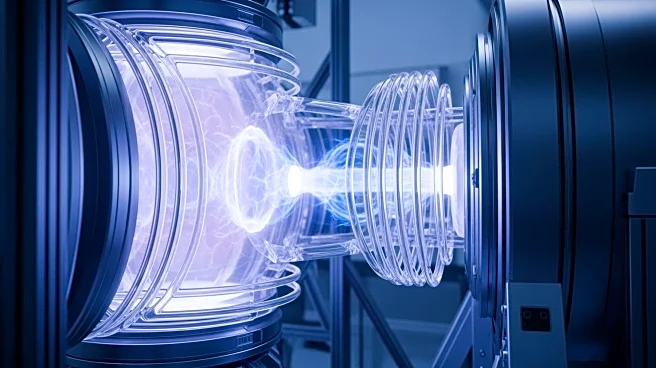What's Happening?
The Trump administration has initiated a Section 232 investigation into medical equipment imports, raising concerns about potential tariffs among medtech companies. The Department of Commerce disclosed the investigation, which began on September 2, aiming to assess national security risks associated with medical device imports. Industry group Advamed is actively lobbying for exemptions, highlighting that 70% of medical equipment used in the U.S. is domestically produced. The investigation covers a wide range of medical products, from basic items like syringes and needles to complex devices such as insulin pumps and imaging machines. Large multinational firms like Siemens Healthineers and GE Healthcare have yet to comment, while Philips has indicated no immediate operational impact. Analysts suggest that new tariffs could lead to increased costs for consumers and potential shifts in manufacturing strategies.
Why It's Important?
The investigation could have significant implications for the U.S. medical device industry, potentially leading to increased tariffs that may affect pricing and accessibility of medical technologies. If tariffs are imposed, companies might pass the costs onto consumers, impacting hospitals and patients financially. The investigation underscores the Trump administration's broader trade strategy, which has previously targeted other industries like pharmaceuticals. The potential for increased tariffs could drive medtech firms to reconsider their manufacturing locations, possibly boosting domestic production but requiring substantial time and investment. The outcome of this investigation could influence trade relations and agreements with key partners like the European Union and Japan, affecting the industry's global operations.
What's Next?
Public comments on the investigation are open for 21 days, with the Department of Commerce having 270 days to report findings to President Trump. This timeline suggests that any tariff actions might not take effect until summer 2026. Analysts predict that the industry could face additional tariffs, although the extent and timing remain uncertain. Companies may need to strategize on mitigating tariff impacts, potentially increasing U.S. manufacturing or adjusting pricing structures. The investigation's outcome could also prompt further lobbying efforts from industry groups seeking to protect their interests.
Beyond the Headlines
The Section 232 investigation highlights the intersection of trade policy and national security concerns, raising questions about the balance between protecting domestic industries and ensuring access to critical medical technologies. The potential for tariffs on medical devices could spark broader debates on healthcare costs and the role of government in regulating trade. Additionally, the investigation may influence future policy decisions regarding the importation of essential goods, setting precedents for how similar cases are handled.









